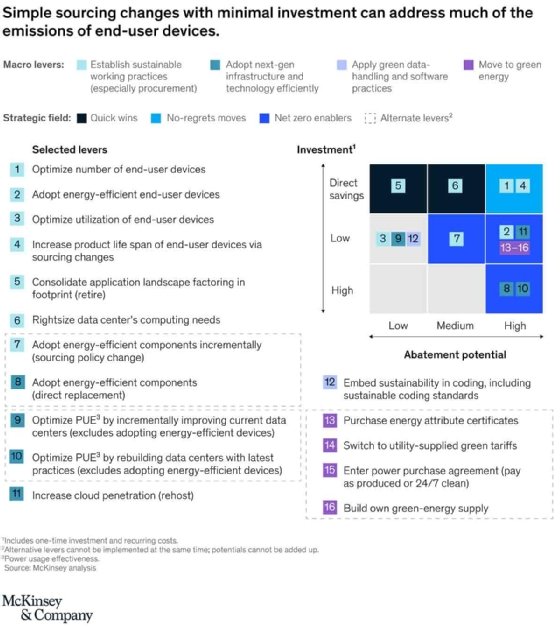USB-C
What is USB-C?
USB-C, or Universal Serial Bus Type-C, is a standard connection type for mobile and portable devices. It provides a single reversible connector to transmit both power for charging and data for transfers. It is designed to replace all current USB types. As the USB-C standard gets adopted by more device manufacturers, it is expected to become near-ubiquitous.
Like its predecessors USB-A and USB-B, USB-C is also a connection standard developed by the USB Implementers Forum (USB-IF), a global consortium of more than 1,000 companies that promote and support USB technology. In creating this standard, the USB-IF hopes to make available a single, universal connector for a wide range of devices. Eventually, this universal connector is likely to replace older USB connectors and other types of ports such as HDMI, DisplayPort and VGA.

Most USB-C connectors are rated for peak connection speeds of up to 10 gigabits per second (Gbps). The ports that support this speed are known as USB 3.2 Gen 1x2. USB-C ports supporting lower transfer speeds are also available. Ports supporting higher speeds, up to 20 Gbps, are known as USB 3.2 Gen 2x2, although they are not yet widely available. All USB-C ports are backward compatible.
USB-C ports also support USB 2.0 through USB 4 to provide transfer rates of up to 40 Gbps. USB-C connectors can also provide up to 100 watts (W) of power, adequate for most laptops and other thinner, smaller devices. In the coming years, USB-C will support both the data and power needs of many devices in a compact connector format.
Compatibility with previous USB standards
USB-C remains electrically compatible with previous USB standards through the inclusion of extra pins. Only a USB-C-to-USB adapter is required for older devices such as USB-A, USB-B, and their mini and micro versions. Still, USB-C is considered an upgrade over USB-A and USB-B due to its unique features: a reversible port, the ability to power more devices and support for much higher data transfer rates.
USB-C is also compatible with Thunderbolt, the port jointly created by Intel and Apple. USB-C and Thunderbolt look similar. In addition, both are bidirectional, so they have similar functionalities. Their compatibility means you can connect a USB-C cable to a Thunderbolt 3 port, and vice versa, to do the following:
- Transfer data.
- Charge devices.
- Connect a computing device to a peripheral device.
USB-C vs. Micro-USB
USB-C was introduced in 2014. Micro USB is an older standard, dating to 2007. A key difference between the two is that USB-C is slightly thicker than micro USB. USB-C also has a more oval, symmetrical shape and a reversible connector to accommodate its direction-agnostic orientation. Because USB-C cables have the same connector on both ends and can be inserted into the USB-C port in any orientation, there's no need to flip the device to find the "right" orientation. Micro USB connectors have a long edge and a short edge, meaning they must be properly aligned with the port direction.
Speed is another crucial difference between the standards. Micro-USB only supports data speeds of up to 480 Mbps. USB-C supports speeds of up to 20 Gbps. USB-C is also capable of fast charging to save time; micro USB is not.
Currently, micro USB is compatible with more electronic devices than USB-C, attributable to its longer time in market. But as USB-C becomes the standard, it will become compatible with more portable devices.
The future of USB-C
In October 2022, the European Union Parliament issued a press release stating that by the end of 2024, three types of mobile devices sold in the EU -- phones, tablets and cameras -- must be equipped with a USB-C charging port. In spring 2026, the rule will extend to laptops. Over time, it will apply to all rechargeable small or medium-sized electronic devices that can be charged via a wired cable and operate with power delivery of up to 100W.
This push for USB-C ports will let consumers use a single charger to power up their devices, meaning they won't need a different charger every time they buy a new device. The new rule is part of the EU's effort to reduce e-waste as well as help consumers make more sustainable choices and simplify their digital lives.

The device connectivity standard is planned to be used for foreseeable future speed grades, resulting in more compatible connections and less cable head flipping. The standard is already being used with a host of portable devices, including smartphones -- the Apple iPhone being one of the latest "holdouts" to become implement USB-C in their devices -- external hard drives, smart home devices, and laptops.
Developed in 1995, USB technology evolved from USB 1.0 to USB4 by 2019, introducing faster speeds, smaller connectors and USB-C standardization. Learn the history of this industry standard.
